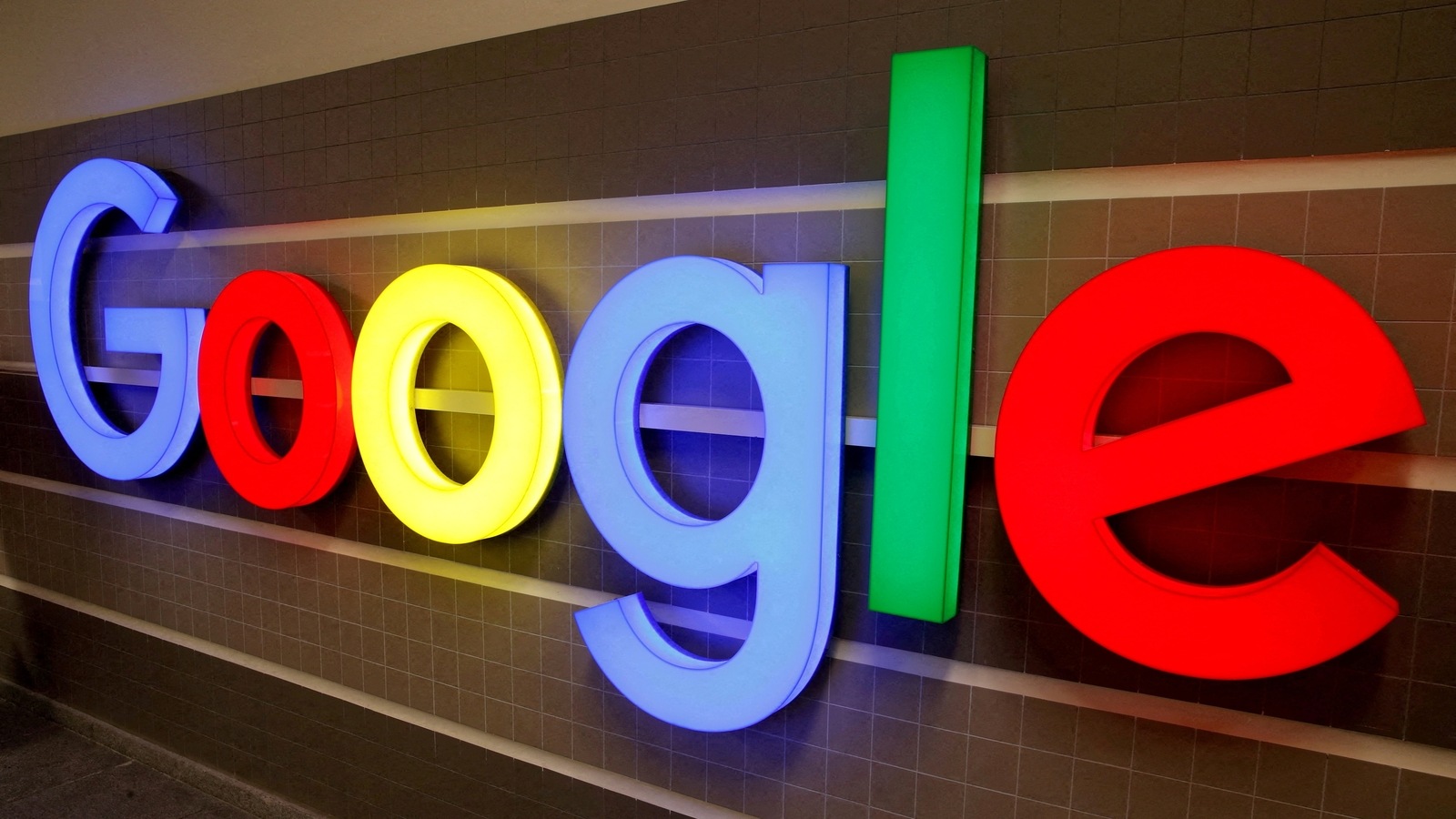Six Documents That Explain DOJ’s Antitrust Case Against Google
The most damning evidence in the US antitrust trial against Alphabet Inc.’s Google that concluded in Washington this week came not from the parade of witnesses from Apple Inc., Microsoft Corp. and other companies, but from internal documents.

The most damning evidence in the US antitrust trial against Alphabet Inc.'s Google that concluded in Washington this week came not from the parade of witnesses from Apple Inc., Microsoft Corp. and other companies, but from internal documents.
During the 10-week trial, the Justice Department used emails, slides and other records to illustrate how Google's lavish payments to other companies ensured its search engine became the preselected option almost everywhere people access the internet.
Antitrust enforcers allege that Google illegally maintained a monopoly over search, where it controls nearly 90% of online queries, through those payments to smartphone makers, web browsers and wireless carriers. That dominance allowed Google to raise prices on advertisers without consequences, they argue, and delay innovations and privacy features that consumers want when they search online.
The fate of the world's fourth-largest company is now in the hands of US District Court Judge Amit Mehta, who delayed closing arguments until May and likely won't have a ruling for several months. If he finds Google violated antitrust law, another proceeding will determine remedies — including a possible breakup of the company.
The 10-week trial featured testimony from Apple executives, Google Chief Executive Officer Sundar Pichai and Microsoft CEO Satya Nadella. But major revelations came in the internal documents and emails, only a small portion of which have been made public.
Here are six documents that best illustrate the Justice Department's case:
1) Google spends $26 billion to be the default
Google pays other companies to set its search engine as the default by sharing a portion of the money it makes through advertising. The exact percentage differs between contracts and Google has maintained both the rate and amount it pays to particular companies is confidential.
Being the default search engine gives Google access to more data than its rivals, allowing it to improve its algorithms and results and making it even harder for competitors to attract users.
Mehta allowed the Justice Department to reveal how much the company has paid overall by year — in 2021, it paid $26.3 billion out of the $146.4 billion earned from search advertising, or roughly 18%. The number has increased since 2014, when it paid $7.1 billion of $46.8 billion it brought in via search advertising, or about 15%. The Justice Department alleges Google's growing payments for its default status demonstrate how important they are to its continued dominance in search.
For comparison, the market capitalization of Warner Bros Discovery Inc., Delta Air Lines Inc. and 215 other companies in the S&P 500 Index are lower than Google's 2021 default payments. According to the International Monetary Fund, 97 countries in the world including Haiti, Albania and Nicaragua also have a smaller gross domestic products than that.
Google's biggest payment every year is to Apple: Google's CEO testified in a separate antitrust trial that the payment was “well over $10 billion” last year. Both Google and Apple have objected to revealing details about the agreement publicly, though a witness accidentally disclosed that the search giant pays out 36% of revenue made from search advertising on Macs, the iPhone and iPads.
Google argues that the payments help support the Android ecosystem, which competes against Apple's iPhone. And rivals like Microsoft have long paid for their products to be pre-installed and set as the default on computers.
2) Google makes more than $100 billion from search ads
Google's search advertising – the text and shopping promotions that appear at the top of a results page in response to user queries – are the company's most lucrative business. About two-thirds of Google's total revenue comes from search ads, executives testified at the trial, amounting to more than $100 billion in 2020.
Michael Roszak, a Google finance executive, prepared notes for a 2017 speech that the Justice Department alleges offers insight into how the company's employees see competition. He wrote that search advertising is a lucrative business model only rivaled by criminal drug or contraband operations. Google has the luxury of being able to ignore demand pressures and focus on the supply side, or advertising revenue, he wrote.
Witnesses from JPMorgan Chase & Co., Home Depot Inc., Expedia Inc. and Booking Holdings Inc. testified at the trial about the importance of Google's search ads to reach consumers. Several said the costs of their search ads on Google have ballooned in recent years as the company changed the rules for auctions used to set pricing. And they don't have good alternatives to Google — the first place many people go to start looking for something online.
Google argued that Roszak's notes were only part of a training and don't represent the company's views. It also contests the idea that its search advertising is a “must-have,” arguing that it competes with Amazon.com Inc., Meta Platforms Inc. and ByteDance Ltd.'s TikTok.
3) Google's most important default deal is with Apple
Google first entered into a deal to be the default search engine in Apple's Safari browser in 2002. Today that's the most important of Google's default deals, since it sets the search engine for the iPhone, the most-used smartphone in the US.
The most recent iteration – negotiated in 2016 between Pichai and Apple dealmaker Eddy Cue – includes a provision that the two would “support and defend” the pact against antitrust scrutiny.
Notes from a 2018 meeting between Pichai and Apple CEO Tim Cook shown in court said of Google's collaboration with Apple on search: “Our vision is that we work as if we are one company.” That line raises red flags for antitrust enforcers since Google and Apple are each other's biggest rivals in the smartphone industry and should be competing.
When he testified in late October, Google's Pichai said he doesn't recall making that statement and that the company fiercely competes with Apple even though they are partners on search.
4) Being the default matters because most people don't switch
Google's default position on a web browser or mobile phone discourages people from switching to rival search engines, the Justice Department alleges.
And Google is very aware of the value of that key position. In 2007, Google chief economist Hal Varian called the default home page a “powerful strategic weapon in the search battle.” In 2014, Google determined that Android users “rarely stray away from pre-loaded apps.” And in 2015, Google described potentially losing the deal with Apple for it to remain the default search engine on Safari browsers as a “code red.”
The government's main economic witness – Massachusetts Institute of Technology's Michael Whinston – calculated that Google's agreements lock-up about 50% of the search queries made in the US. (That number doesn't include another 20% of US searches made through Google's Chrome browser, which has its search engine as the default.)
Using information on when people have shifted their defaults – such as when Apple dropped Google Maps as its default service on iPhones in favor of its own app – he calculated that about 33% of all US searches will always go to the default. That means a rival search engine could only ever hope to garner about 17% of US search traffic because of Google's deals.
Google's economic expert Kevin Murphy contested this calculation, arguing that Whinston was wrong to use the Apple Maps example for his calculations. He also contested the idea that Google's contracts lock-out competitors since companies like Microsoft and Yahoo could compete for the default themselves.
5) “Google is magical” because user data fuels search
Search engines rely on users to improve their results. Eric Lehman, a 17-year Google veteran who worked on search ranking, gave presentations internally on how the company's search engine works titled “Google is magical.”
The “key” to Google's magic is the user information that flows back to the search engine, according to Lehman. “As people interact with search, their actions teach us about the world,” he wrote. “For example, a click might tell us that an image was better than a web result.”
Google logs that information – not just what a user clicks on, but how far they scroll down a page or across a carousel, whether their mouse hovers over a specific result and some other details like the person's location.
“The source of Google's magic is this two-way dialogue with users,” Lehman's presentation concludes. “With every query, we give some knowledge and get a little back.”
The Justice Department argues that Google's contracts ensure not only that its search engine gets the most user data – 16 times as much as its next closest competitor — that data stream also keeps its rivals from improving their search results and competing effectively, enforcers say.
Google rejects the idea that user data is necessary for a search engine today because of advances in technology. Lehman and other Google witnesses have testified that user interaction information is less crucial because of the improvements that can be gained from artificial intelligence and machine learning.
6) Google told employees what not to say
Google was founded in 1998, one month before the Justice Department's famed antimonopoly trial against Microsoft. In part because of that, the company has long been concerned about antitrust scrutiny, so much so that the Justice Department alleges it taught employees to “Communicate with Care” – adding lawyers to email chains in order to shield discussions from government review and avoiding certain words in written communications.
In one company presentation, Google employees were instructed not to use terms like “crush,” “kill,” “hurt” or “block” when talking about rivals. They should also avoid “lock-in,” “market,” “bundle” or “tie.” And when discussing competitors, they should include a lot of them. “If you really need to list a group of competitors in a particular area, list as many as possible (or make clear that it's a partial list). It's just wrong to say that we're dominant in or control any line of business.”
The Justice Department alleges that these actions may have hidden evidence that could have proven Google's alleged antitrust violations.
Google denies that it sought to hide evidence, saying that it legitimately encouraged employees to seek legal guidance on complex legal or regulatory issues. The communications guidelines sought to offer best practices for dealing with confidential or sensitive topics.
Catch all the Latest Tech News, Mobile News, Laptop News, Gaming news, Wearables News , How To News, also keep up with us on Whatsapp channel,Twitter, Facebook, Google News, and Instagram. For our latest videos, subscribe to our YouTube channel.



























